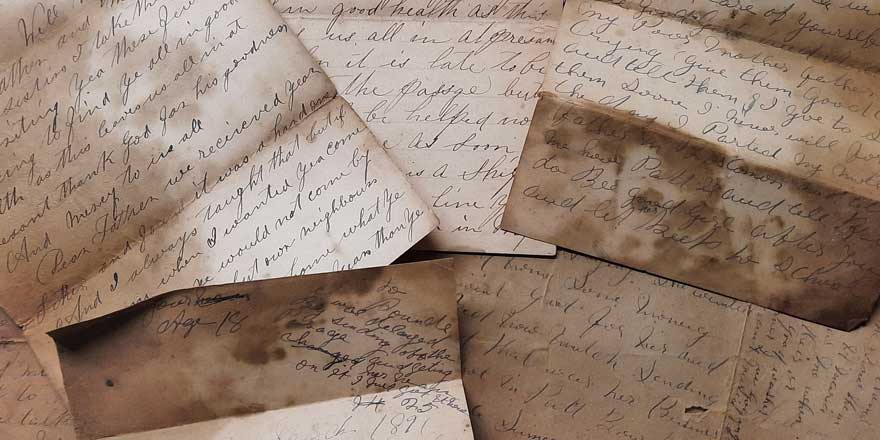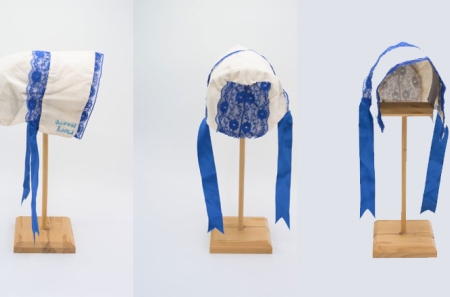
New DRI Collection: Tulsk History Society: Letters from the 1880s–1890s
09 June 2022Tulsk History Society has published its first collection in the Digital Repository of Ireland.
The Digital Repository of Ireland (DRI) is delighted to announce that Tulsk History Society, winners of the 2022 DRI Community Archive Scheme, has published its collection ‘Tulsk History Society: Letters from the 1880s–1890s’ in the Repository. Tulsk History Society was formed in Spring 2021 to collect, record, publish, and disseminate information on all aspects of local history in the Parish of Tulsk, Co. Roscommon. They aim to uncover the local history, archaeology, folklore, and traditions of Tulsk and to disseminate their research. They run a quarterly newsletter and you can find out more about it on their Facebook page.
Tulsk History Society received a donation of letters dating from the 1880s and 1890s, which were discovered hidden in the thatch of an uninhabited local cottage. These letters were sent from America by Tulsk immigrants and are a valuable source of information about ordinary life in nineteenth-century America and Ireland. In their application for the DRI Community Archive Scheme, Tulsk History Society outlined that these letters detail ‘the poverty and mass emigration’ from the area as well as ‘the heartbreak associated with large families being separated by the search for a better life elsewhere'. While of undoubted historical importance, the letters are in a fragile condition. While digitisation preserved them as a record, digital preservation means the digital assets will not only be preserved, it will ensure they are accessible to as wide an audience as possible.
On the publication of this collection, Noel Sheerin of Tulsk History Society commented that:
The DRI Community Archive Scheme has enabled Tulsk History Society to place a rare collection of old hand-written letters into the public domain where researchers and other like-minded individuals can interrogate their contents to get a better understanding of the poor living conditions in rural Ireland as well as the opportunities on offer for a new life abroad. The letters, their creators, and recipients are now getting the attention they deserve.
Natalie Harrower, DRI Director added:
We are delighted we can help to preserve this important and fragile collection. This is a wonderful success story of how letters that could easily have been overlooked, destroyed, or lost were saved thanks to the hard work and efforts of a community and the volunteers at Tulsk History Society. We are proud to work with groups like Tulsk to preserve these truly unique items in digital form, and make them more widely accessible.
These letters join a growing body of material in the Repository on the Irish diaspora which tells the story of emigration. The ‘Photographs of Irish Jesuits in Hong Kong’ collection was recently published by DRI member, the Irish Jesuit Archives. More broadly, DRI holds a wealth of personal correspondence from the nineteenth and twentieth-century Ireland and these letters speak to the personal experiences of people living during these periods in a way that no other source can. While some of the letters in this collection are badly damaged, we hope that making them available in DRI will open them up to a wider network that can help decipher their contents. Post-ingest tools and projects, such as Enrich Europeana+, are improving our ability to decipher and make accessible a huge number of collections.
Tulsk were one of two Community Archive Scheme winners for 2022. The Community Archive Scheme is part of DRI’s commitment to ensure the long-term preservation of digital materials is open to a wide range of organisations, including those operating on a non-funded, voluntary basis. The Community Archive Scheme will open on 1 of September 2022 to receive applications for 2023. To find out more about it and when it opens you can subscribe to our newsletter or follow us on Twitter or Instagram.
Explore the ‘Tulsk History Society: Letters from the 1880s–1890s’ collection in the Repository
Image: Preview of letters from the Tulsk HIstory Society collection.



